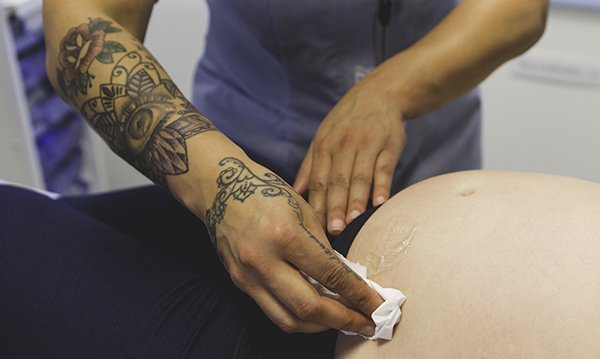Can Nurses Have Tattoos? Exploring Tattoo Policies in Healthcare Settings
Nurses have always been held to a high standard of professionalism and appearance. As such, many aspiring nurses may wonder whether they can have tattoos and still maintain a professional appearance. This question has become more relevant in recent years, as tattoos have become increasingly popular and accepted in mainstream culture.
The answer to the question of whether nurses can have tattoos is not a simple one. It largely depends on the policies of the healthcare facility where the nurse is employed. Some hospitals and clinics have strict policies prohibiting visible tattoos, while others may be more lenient. Additionally, the content and location of the tattoo can also play a role in whether it is deemed acceptable by an employer.
Nursing Profession and Tattoo Policies
Hospital Regulations on Tattoos
The nursing profession is known for its strict dress codes and professional appearance. Many hospitals and healthcare facilities have specific policies regarding visible tattoos. While some hospitals allow tattoos, others have strict rules against them. These policies are put in place to maintain a professional image and ensure patient safety.
According to a survey conducted by the American Nurses Association, approximately 37% of nurses have at least one tattoo. However, the majority of hospitals have strict policies regarding visible tattoos. Some hospitals require nurses to cover their tattoos with clothing or makeup while on duty. Others prohibit visible tattoos altogether.
Visible Tattoos and Patient Perception
The presence of visible tattoos on nurses has been a topic of debate in the nursing profession. Some people believe that tattoos can negatively impact patient perception and trust. Patients may perceive nurses with visible tattoos as unprofessional or untrustworthy. However, others argue that tattoos do not affect a nurse’s ability to provide quality care.
Despite the debate, many hospitals have strict policies regarding visible tattoos. These policies are put in place to ensure patient safety and maintain a professional image. Nurses who have visible tattoos may be required to cover them with clothing or makeup while on duty.
In conclusion, the nursing profession has strict policies regarding visible tattoos. While some hospitals allow tattoos, others have strict rules against them. The presence of visible tattoos on nurses can impact patient perception and trust. Nurses with visible tattoos may be required to cover them with clothing or makeup while on duty to maintain a professional image.

Legal and Ethical Considerations of Tattoos in Nursing
Nurses with tattoos have become more common in recent years, but there are still legal and ethical considerations to keep in mind. While tattoos are generally accepted in society, they may not be appropriate in certain healthcare settings.
Legal Considerations
In the United States, there are no federal laws prohibiting nurses from having tattoos. However, individual states may have their own regulations. Some states require that tattoos be covered while on duty, while others have no restrictions at all. It is important for nurses to research their state’s regulations and follow them accordingly.
In addition, some healthcare facilities may have their own policies regarding tattoos. Nurses should be aware of these policies and follow them to avoid disciplinary action.
Ethical Considerations
Nurses are held to a high standard of professionalism and ethics. Tattoos that are offensive or inappropriate may be seen as a violation of these standards. Nurses should consider the content and location of their tattoos and how they may be perceived by patients and colleagues.
It is also important for nurses to maintain a professional appearance. Tattoos that are visible may be a distraction to patients and may make them feel uncomfortable. Nurses should consider covering their tattoos while on duty to ensure a professional appearance.
In conclusion, while there are no federal laws prohibiting nurses from having tattoos, there are still legal and ethical considerations to keep in mind. Nurses should research their state’s regulations and follow them accordingly, as well as consider the content and location of their tattoos to ensure a professional appearance.
Cultural and Generational Shifts in Tattoo Acceptance
Tattoos have been a part of human culture for thousands of years, but their acceptance in professional settings has been a topic of debate. In the past, tattoos were often associated with criminal activity, rebellion, or subculture. However, in recent years, there has been a cultural and generational shift in the acceptance of tattoos, including in the nursing profession.
Many younger generations have grown up with tattoos being a common form of self-expression and art. As a result, tattoos are becoming more accepted in society, including the workplace. According to a 2019 survey by the Harris Poll, 30% of Americans have at least one tattoo, and 20% of those with tattoos have them in a visible location.
Additionally, many cultures have a long history of tattooing as a traditional practice. For example, in Polynesian culture, tattoos are seen as a symbol of strength, courage, and identity. In Maori culture, facial tattoos are a sign of status and lineage. In these cultures, tattoos are not only accepted but celebrated.
However, it is important to note that not all cultures or generations view tattoos in the same way. Some older generations may still associate tattoos with negative connotations and view them as unprofessional. It is important for nurses to be aware of their workplace’s policies regarding visible tattoos and to consider the cultural and generational backgrounds of their patients.
In conclusion, while there has been a cultural and generational shift in the acceptance of tattoos, it is still important for nurses to be mindful of their workplace’s policies and the cultural backgrounds of their patients. By being respectful and aware, nurses can ensure that their tattoos do not interfere with their ability to provide quality care.

Guidelines for Nurses with Tattoos
Nurses with tattoos are becoming more common in healthcare settings. However, there are still guidelines that nurses with tattoos must follow in order to maintain a professional appearance and adhere to workplace policies.
First and foremost, it is important to check with your employer’s dress code policy regarding tattoos. Some employers may have strict policies that prohibit visible tattoos or require them to be covered at all times. It is important to adhere to these policies in order to maintain a professional appearance and avoid any disciplinary action.
If tattoos are allowed, it is important to ensure that they are not offensive or inappropriate. Offensive or inappropriate tattoos can be a distraction to patients and colleagues and may reflect poorly on the nurse’s professionalism.
Tattoos should also be kept clean and covered if they are in areas that are prone to contamination or infection. This is especially important for nurses who work in sterile environments or who come into contact with patients with weakened immune systems.
Overall, nurses with tattoos should strive to maintain a professional appearance and adhere to workplace policies. By doing so, they can help ensure that they are providing the best possible care to their patients while also maintaining their own professional reputation.









[…] Can You be a Nurse with Felony? – NursingTroop ↩ […]